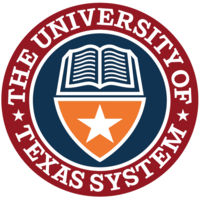预约演示
更新于:2026-02-27
LL-37
更新于:2026-02-27
概要
基本信息
非在研机构- |
权益机构- |
最高研发阶段临床2期 |
首次获批日期- |
最高研发阶段(中国)临床前 |
特殊审评- |
登录后查看时间轴
结构/序列
Sequence Code 11695

来源: *****
关联
6
项与 LL-37 相关的临床试验ChiCTR2300067840
A prospective multicenter comparative study of the efficacy of oral antiviral polypeptide LL-37 and Nirmatrelvir Ritonavir in the treatment of medium sized COVID-19 patients
开始日期2023-02-05 |
申办/合作机构 |
ChiCTR2200063622
Prospective clinical randomized controlled trial on the safety and efficacy of novel coronavirus oral antiviral polypeptide LL-37 preparation
开始日期2022-09-13 |
申办/合作机构 |
NCT04098562
The Efficacy of LL-37 Cream on Aerobic Bacteria Colonization Pattern, Inflammation Response: Interleukin 1α (IL-1α) and Tumor Necrosis Factor α (TNF-α), and Healing Rate of Diabetic Foot Ulcers
Diabetic foot ulcer (DFU) is a common complication of diabetes with global prevalence of 6.3%. Treatment of diabetic foot ulcer (DFU) is challenging with disappointing outcome. Wound debridement, infection control, pressure relief and revascularization are main pillars of DFU management. Various substances and modalities are being investigated for their potential effects in treating DFU, one of which is LL-37.
In this randomized, controlled trial, 40 patients with uncomplicated DFU will be enrolled. Patients are randomly assigned to undergo twice a week treatment with 0.5 mg/mL LL-37 cream (treatment group) or placebo cream (control group) for 4 weeks in addition to standard wound care. The primary outcomes are the healing rate measured by wound area and granulation index and changes in patterns of aerobic bacteria colonization during the 4-week study duration and changes in concentrations of IL-α and TNF-α from fluid collected from DFU on the end of the second and third week of study compared to baseline.
In this randomized, controlled trial, 40 patients with uncomplicated DFU will be enrolled. Patients are randomly assigned to undergo twice a week treatment with 0.5 mg/mL LL-37 cream (treatment group) or placebo cream (control group) for 4 weeks in addition to standard wound care. The primary outcomes are the healing rate measured by wound area and granulation index and changes in patterns of aerobic bacteria colonization during the 4-week study duration and changes in concentrations of IL-α and TNF-α from fluid collected from DFU on the end of the second and third week of study compared to baseline.
开始日期2019-10-01 |
100 项与 LL-37 相关的临床结果
登录后查看更多信息
100 项与 LL-37 相关的转化医学
登录后查看更多信息
100 项与 LL-37 相关的专利(医药)
登录后查看更多信息
1,523
项与 LL-37 相关的文献(医药)2026-06-01·BIOMATERIALS
Stripping cell-free DNA from its immune complex is essential for inflammation control using DNase I
Article
作者: Liu, Lixin ; Chen, Shi ; Chen, Yongming ; Du, Yibo ; Li, Chuang ; Liu, Xingliang ; Zhu, Chenxu
Excessive accumulation of cell-free DNA (cfDNA) has been identified as a primary pathogenic factor in autoimmune diseases. The circulating deoxyribonuclease (DNase) maintaining cfDNA homeostasis is suppressed, and thus exogenous DNase has been applied to degrade cfDNA for inflammation control. However, in pathological states, cfDNA and cationic endogenous peptide (e.g., LL37) form immune complexes (ICs), which not only weaken DNase efficacy but also facilitate immune cell internalization to induce an inflammatory response. With LL37-DNA as a model IC, here we found that the LL37 occupancy not only sterically hinders cfDNA's access to the catalytic sites but also induces deactivation of DNase via formation of ternary complexes (LL37-DNA-DNase I). This transition critically impairs the activity of DNase I within LL37-rich inflammatory microenvironments. Thus, we postulated that heparin, a clinically approved anionic glycosaminoglycan, could destruct the ICs and liberate cfDNAs, restoring their susceptibility to degradation. Indeed, we found that a combination of heparin and DNase I facilitates the DNA degradation and inhibits the ICs-mediated TLR9 activation in vitro. However, the therapeutic outcome observed in rheumatoid arthritis (RA) model was still suboptimal, attributed to the short plasma half-life of DNase. To validate this, we engineered a DNase nanoparticle (DNase@TANP) capable of sustained release of the enzyme. Consequently, the sequential administration of heparin and DNase@TANP (with a 30-min interval) to RA model demonstrated a synergistic cfDNA degradation efficiency, effectively suppressing Toll-like receptor (TLR) mediated inflammatory pathways and ameliorating joint inflammation. This strategy, leveraging clinically approved agents for cfDNA clearance, establishes a promising therapeutic paradigm for cfDNA-associated autoimmune disorders.
2026-05-01·FOOD AND CHEMICAL TOXICOLOGY
Limosilactobacillus fermentum LF61: A multidimensional study on safety and functionality from genomics to clinical application
Article
作者: Xu, Fei ; Jiang, Zhao ; Liu, Yinhua ; Jin, Manfei
This study presents a comprehensive multidimensional assessment of the safety and functional efficacy of Limosilactobacillus fermentum LF61, a strain isolated from human milk. Genomic analysis revealed no virulence factors (VFDB), drug resistance genes (CARD), or toxin synthesis gene cluster (antiSMASH) within its chromosome (2.04 Mb) and plasmid (15.5 kb), meeting EFSA's QPS safety criteria. In vitro studies demonstrated that LF61 exhibited a 2-h survival rate of >98% in gastric acid (pH 2.0) and a survival rate of 99.66% in intestinal fluid (pH 8.0). LF61 was also nontoxic to Caco-2 cells (metabolic activity at 20% concentration: 100.3 ± 2.1%). An acute oral toxicity test (in ICR mice) demonstrated an LD50 > 2 × 1010 CFU/kg. In a randomized, double-blind clinical trial (n = 49), daily intake of 3 × 1010 CFU of LF61 for 8 weeks increased serum levels of the antimicrobial peptide LL-37 by 12.3% (p < 0.05), and IgA, IgG, and IgM by 18.7%, 15.2%, and 9.8%, respectively (p < 0.05). Metagenomic analysis revealed that LF61 promoted colonization by short-chain fatty acid-producing bacteria, such as Mitsuokella and Turicibacter (LDA >3), activated the carbohydrate metabolism pathway (p = 0.002), and maintained stable α-diversity in the microbiome (Shannon index p > 0.05). Collectively, our findings indicate that LF61 exerts beneficial effects via a gut-immune axis bidirectional regulatory mechanism, offering a theoretical basis and clinical evidence for the development of novel immunomodulatory probiotics targeting the gut-immune axis.
2026-04-01·Materials Today Bio
Angiogenesis-facilitating and inflammation-modulating SIS-based patches coupled with functional peptides for abdominal wall repair
Article
作者: Zhao, Bo ; Wang, Minggang ; Wei, Pengfei ; Liu, Yuchen ; Cao, Jinxin ; Zou, Zhenyu ; Jing, Wei ; Huang, Yiqian ; Zhang, Xueying
Abdominal wall defects caused by trauma, tumors, infections, abdominal surgery, and congenital factors can lead to functional impairments. The use of patches remains the most effective treatment approach. However, current repair materials still have limitations in regulating inflammation and promoting vascularization. Here, a small intestinal submucosa (SIS) extracellular patch was developed via conjugation with functional peptides PR1P and LL37 (i.e., SIS-PR1P-LL37), to achieve angiogenesis and inflammation modulation for abdominal wall repair. In vitro experiments confirmed its superior pro-angiogenic potential when human umbilical vein endothelial cells (HUVECs) were treated with the patch, both tube formation (total tube length: 4.51 ± 0.53 mm, junction count: 28.00 ± 4.97) and scratch wound repair (repair area 3.26-fold that of the SIS group) outperformed the native SIS group (average tube length: ∼1.3 mm). After 7 days of culture, the VEGF expression was higher than that in the SIS group, and the expression levels of key angiogenic genes (VEGF, VEGFR-2, etc.) were 5.45-7.82-fold higher than those in the control group. Additionally, this peptide-conjugated SIS patch could enhance cell proliferation and angiogenic differentiation, effectively reduce the levels of inflammatory cytokines, and enrich the TLR and VEGF signaling pathways. The rat abdominal wall defect model further confirmed its superior capacity for tissue regeneration and angiogenesis, indicating it provides important theoretical and experimental support for the development of novel bioactive patches and holding promise for optimizing clinical strategies for abdominal wall repair.
34
项与 LL-37 相关的新闻(医药)2026-02-17
(请点击图片查看)
我国学者在Science Advances发表关于益生菌的最新研究成果
近日,浙江大学医学院和西南大学药学院联合在Science子刊《Science Advances》发表了题为“Bacteriocin-transport–inspired oral peptide-probiotic delivery ameliorates IBD complications via autophagy and gut homeostasis”的研究性论文。
肠纤维化(intestinal fibrosis, IF)是一种可导致肠道功能障碍的进展性疾病,也是炎症性肠病(inflammatory bowel disease, IBD)最常见的并发症,在超过 50% 的 IBD 患者中发生。随着全球 IBD 发病率的急剧上升,对 IF 的有效管理已成为一项亟待满足的临床需求。目前临床上使用的治疗药物包括美沙拉嗪、糖皮质激素、免疫抑制剂以及生物制剂,这些药物虽能实现炎症控制,但在阻断纤维化进程方面疗效有限。纤维化引发的肠道梗阻需要多次外科手术干预,进而会导致短肠综合征和手术相关并发症,严重影响患者的生活质量与生存率。
肠纤维化(IF)的发病机制与细胞外基质(extracellular matrix, ECM)的过度沉积相关,此类基质由病理性终末效应细胞(肠道肌成纤维细胞)分泌产生。肠道肌成纤维细胞则是肠道成纤维细胞在失调的肠道微环境刺激下转化而来,而肠道微环境失调的表现包括炎性细胞浸润、免疫功能紊乱以及菌群失调。因此,单一靶点的干预措施往往难以应对肠纤维化的多因素本质,最终导致疗效受限。基于此,我们提出有效干预方案需同时调控肌成纤维细胞、恢复肠道微环境稳态—— 这是一种同时靶向效应细胞与致病驱动因素的双重策略。此外,这种紊乱的微环境会为艰难梭菌(一种机会致病菌)的定植与过度增殖创造有利条件,在炎症性肠病(IBD)患者中,该菌的复发率超过 20%。艰难梭菌产生的毒素(毒素 A 与毒素 B)会进一步损伤肠道上皮屏障、加重炎症反应,形成恶性循环,严重恶化炎症性肠病的临床病程。
LL37是一种由cathelicidin衍生而来的含 37 个氨基酸的抗菌肽,具有强效的抗炎及免疫调节活性。既往研究发现,通过灌肠给药的 LL37 可显著缓解DSS诱导的急性结肠炎(AC),以及 DSS 联合克罗恩病(CD)双刺激模型结肠炎的症状。LL37 对肠道成纤维细胞的异常活化具有显著抑制作用,但其作用机制尚未被完全阐明。上述研究结果表明,LL37 是治疗炎症性肠病(IBD)及其并发症极具潜力的候选药物。
仿生策略已被应用于药物递送领域,其核心机制是模拟天然的生物学现象。细菌素是一类由细菌合成的抗菌蛋白或多肽,是细菌种内与种间竞争的关键物质。在特定的时间与空间条件下,细菌素的合成与释放会与细菌的定植过程形成空间协同,进而发挥作用。这一天然生物学现象构成了细菌将细菌素运输到靶点的一种简单高效策略(BTB)。因此,受BTB策略的启发,我们提出利用益生菌(兼具载体与治疗剂双重功能)实现抗菌肽 LL37 的靶向递送。本研究构建了一种生物杂合复合物(即本研究中所述的 BTB),该复合物实现了 LL37 与益生菌的整合。此策略在简化药物递送系统复杂度的同时,可使两种治疗剂产生协同效应。该 BTB 复合物模拟天然的 “一体化” 功能结构,能够实现 LL37 的靶向递送与微环境响应性释放。此外,越来越多的临床证据表明,益生菌在维持肠道稳态、调控黏膜免疫及增强肠上皮屏障完整性方面发挥着关键作用。因此,BTB 复合物不仅实现了益生菌与生物活性肽的结构整合,更能最大化 LL37 与益生菌的双重作用效果,同时作用于效应细胞与肠道微环境,增强协同治疗效应。
本研究以模拟细菌行为的仿生策略为设计理念,构建了 BTB 复合物并将其作为结构与功能一体化的研究范式。为进一步提升 BTB 的口服递送效率,我们采用具有保护作用的海藻酸钠(Alg)对该生物复合物进行包封。本研究制备的 BTB-Alg 治疗制剂,其制备过程为:先将带正电荷的 LL37 修饰益生菌(乳酸杆菌)与带负电荷的海藻酸钠依次预结合,形成可负载益生菌 - 多肽的共生体系。基于仿生设计,BTB-Alg 实现了益生菌与 LL37 的精准整合,可增强生物活性成分的递送效率,并对各组分的活化过程实现时空调控。在动物体内实验中,BTB 延长了益生菌 - 多肽复合物在肠道内的滞留时间,同时可实现 LL37 的靶向释放,并促进益生菌在肠道内的定植。通过整合药物工程学与多组学技术,本研究证实 BTB-Alg 可通过同时调控炎症反应、氧化应激、免疫活化及肠道菌群组成,实现肠道稳态的恢复。在小鼠疾病模型中,该递送系统对肠纤维化(IF)、急性结肠炎(AC)及双刺激诱导的结肠炎均表现出优异疗效。本研究还发现了一条腺苷酸活化蛋白激酶(AMPK)依赖性自噬通路,阐明了 LL37 发挥抗纤维化作用的分子机制(见图 1)。综上,BTB-Alg 具有巨大的转化应用潜力,有望成为一种可临床转化的治疗平台,用于炎症性肠病(IBD)及其相关并发症的治疗。
原文链接
https://www.science.org/doi/10.1126/sciadv.adz9069
食品放大镜 | 不同领域研究成果
(请点击标题查看)
胶体、乳液及递送系统 多糖、纤维、低聚糖等
脂质 蜂产品食用菌
食物蛋白、肽与氨基酸 多酚类化合物 淀粉
食品包装与货架期 食品安全与质量控制
凝胶 茶 酒 3D和4D打印
食品营养与人类健康 食品检测与分析
食品相关合成 人造肉 食品风味
益生元、益生菌及合生元 食物过敏分子对接与分子动力学 黄酮类化合物食品感官科学与分析 农产品贮藏与加工肉与肉制品 蛋与蛋制品 水产品 奶及奶制品豆及豆制品 果蔬及果蔬制品 大米及米制品炎症性肠病 糖尿病 肝病 神经疾病
食品放大镜 | 大杂烩
(请点击标题查看)
食品大事件 食品基金项目 食品奖项
人物访谈及报道 CNS期刊论文
封面文章 顶刊综述 高被引论文
期刊征稿 期刊资讯 会议通知 学科动态
博士招生 硕士招生 考研调剂 夏令营
食品科普 食品相关书籍 竞赛
优秀博士硕士论文
食品放大镜 | 学者研究成果
(请点击学者姓名查看)
薛长湖院士 金征宇院士 谢明勇院士
陈卫院士 朱蓓薇院士 孙宝国院士
陈坚院士 孙大文院士 单杨院士刘仲华院士 张和平教授 周光宏教授江连洲教授 陈峰教授 聂少平教授
赵谋明教授 赵国华教授 李斌教授
王书军教授 刘学波教授 唐传核教授
张慜教授 谢建华教授 陈卫教授
谭明乾教授 张宇昊教授 王静教授
徐岩教授 李春保教授 孔保华教授
陈士国教授 王兴国教授 高彦祥教授
黄强教授 方亚鹏教授 汪勇教授
李媛教授 刘志刚教授 曾晓雄教授
汪少芸教授 姜微波教授 刘夫国教授
王强研究员 王仲孚教授 徐宝才教授
白卫滨教授 高振鹏教授 易俊洁教授
刘星教授 甘人友副研究员 范俊峰教授
翟齐啸教授 李进伟教授 陈启和教授
赵新淮教授 杜明教授 张名位研究员
侯俊财教授 丁郁教授 徐鑫教授
David Julian McClements教授 王建龙教授
李杨教授 陈雪峰、龚频团队 许恒毅教授
陆颖健教授 刘元法教授 秦文教授
李锦铨教授 刘俊教授 李晓东教授
倪莉教授 章宝教授 陈廷涛教授
张红印教授 盛占武研究员 姜瞻梅教授
张德权研究员 齐向辉教授 郑家荣教授
陈翊平教授 姜毓君教授 毕金峰研究员
魏新林教授 肖安风教授 吴彩娥教授
宛晓春教授 魏子淏教授 龚金炎教授
周存山教授 楚强研究员 高鸿教授
秦磊教授 邵平教授 马龙教授
许正宏教授 吴继红教授 钟恬副教授
刘龙教授 王凤忠研究员 郭顺堂教授
周景文教授 钟芳教授 游丽君教授
吴贺君教授 刘锴栋教授 邓乾春研究员
白艳红教授 夏小乐教授 张英华教授
任晓锋教授 汤晓智教授 孙培龙教授
盛军、田洋团队 张娟教授 陈小强教授
刘建华教授 林松毅教授 陈海霞教授
徐志祥教授 寇莉萍副教授 隋晓楠教授
刘贵珊教授 启航教授 张春晖研究员
杨兴斌教授 古绍彬教授 冯翠萍教授
李玥教授 邱超副研究员 刘素稳教授
李伟教授 田怀香教授 丁春邦教授
董秀萍教授 吴伟教授 张国文教授
张素芳教授 潘磊庆教授 陈春旭副教授
陈龙副研究员 王允圃研究员 王子朝副教授
邹小波教授 郑金铠研究员 孙庆杰教授
梁盈教授 熊涛教授 钟恬副教授
毛立科副教授 房耀维教授 孙琦副教授
马森教授 闫文杰教授 许敏伟教授
魏长庆教授 李大鹏教授
在线投稿平台链接:https://www.wjx.top/jq/85151447.aspx
声明
标注‘原创’仅代表原创编译,本平台不主张对原文的版权。本平台转载仅仅是出于学术交流和传播信息的需要,并不意味着代表本平台观点或证实其内容的真实性;转载文章版权归原作者所有,作者如果不希望被转载或有侵权行为,请联系本平台删除。由于编译水平有限,推文或简历有不妥之处,深感抱歉,请联系本平台修改或者删除。
微生物疗法临床研究
2026-01-14
iNature
肠道纤维化是炎症性肠病的一种严重并发症,目前仍是临床上一项亟待解决的关键需求。尽管LL37多肽和益生菌在抗肠道纤维化方面展现出治疗潜力,但其临床应用受到酶解和快速清除的限制。
2026年1月2日,西南大学李翀和浙江大学沈哲,李鑫共同通讯在Science Advances在线发表题为“Bacteriocin-transport–inspired oral peptide-probiotic delivery ameliorates IBD complications via autophagy and gut homeostasis”的研究论文。该研究开发了一种口服生物治疗平台[BTB–海藻酸盐],该平台采用“一体化”结构,能够实现LL37与益生菌的时空协同作用。BTB–海藻酸盐通过缓解炎症、调节免疫和重建肠道菌群,有效恢复了肠道稳态。
值得注意的是,整合多组学分析和分子动力学模拟揭示,LL37通过诱导腺苷酸活化蛋白激酶/哺乳动物雷帕霉素靶蛋白介导的自噬发挥抗纤维化作用,这一机制在临床样本中得到了验证。在急性结肠炎、炎症性肠病相关肠道纤维化以及艰难梭菌并发性结肠炎三种小鼠模型中,BTB–海藻酸盐均表现出显著的治疗效果,凸显了其作为炎症性肠病治疗范式的潜力。本研究为广泛的胃肠道疾病应用提供了一种具有临床转化前景的策略。
肠道纤维化(IF)是一种导致肠道功能进行性减退的病理状态,是炎症性肠病(IBD)最常见的并发症(发生率超过50%)。随着IBD全球发病率急剧上升,对IF进行有效管理已成为亟待满足的临床需求。当前的治疗方案包括美沙拉嗪、皮质类固醇、免疫抑制剂和生物制剂,尽管能够控制炎症,但在阻止纤维发生方面疗效有限。纤维化引发的梗阻常需多次手术干预,并可能导致短肠综合征及手术并发症,严重损害患者生活质量和生存率。
IF的发病机制涉及细胞外基质(ECM)的过度沉积,这些ECM由病理性的终末效应细胞(肠道肌成纤维细胞)分泌。肠道肌成纤维细胞由肠道成纤维细胞在失调的肠道微环境因素刺激下转化而来,这些环境因素包括炎性细胞浸润、免疫紊乱和菌群失调。因此,针对单一靶点的干预往往难以应对IF的多因素特性,导致疗效不佳。作者由此提出,有效的干预需要同时调控肌成纤维细胞并恢复肠道微环境稳态——这是一种同时靶向效应细胞和致病驱动因素的双重策略。此外,这种失调的微环境为机会性病原体艰难梭菌的定植和过度生长创造了有利条件,该菌在超过20%的IBD患者中复发。艰难梭菌产生的毒素(TcdA和TcdB)会进一步破坏肠上皮屏障并加剧炎症反应,形成恶性循环,严重恶化IBD的临床病程。万古霉素(VAN)目前仍是临床标准治疗药物,但其疗效正日益受到抗生素耐药性和肠道菌群失调加剧的挑战。
模式机理图(图片源自 Science Advances )
LL37是一种由37个氨基酸组成的抗菌肽,来源于cathelicidin家族,具有强大的抗炎和免疫调节特性。先前研究发现,通过灌肠给药,LL37能显著缓解葡聚糖硫酸钠(DSS)诱导的急性结肠炎(AC)以及DSS/克罗恩病(CD)双重刺激模型结肠炎的症状。LL37对异常活化的肠道成纤维细胞表现出强烈的抑制作用,其具体机制尚未完全阐明。这些发现使LL37成为治疗IBD及其并发症极具前景的候选药物。然而,由于口服靶向递送至远端胃肠道的挑战尚未解决,LL37在IBD中的应用探索仍然有限。
仿生方法通过模拟自然生物现象,已被应用于药物递送领域。细菌素是细菌合成的抗菌蛋白或多肽,是种内和种间竞争的关键工具。在特定的时间和地点,细菌素会与细菌定植在空间上协调一致地策略性合成并释放,以发挥其作用。这种自然生物现象形成了一种简单高效的策略,即细菌将细菌素递送至靶点(BTB)。因此,受BTB策略启发,作者提出利用益生菌(兼具载体和治疗剂功能)来递送抗菌肽LL37至特定部位。作者构建了一种生物杂合复合物,在本研究中称为BTB,它整合了LL37和益生菌。这种方法在最小化递送系统复杂性的同时,实现了两种治疗剂之间的协同效应。该BTB复现了自然的“一体化”功能结构,以实现LL37的同步递送和微环境响应性释放。此外,越来越多的临床证据确立了益生菌在维持肠道稳态、协调黏膜免疫和增强上皮屏障完整性方面的关键作用。因此,BTB不仅在结构上整合了益生菌和生物活性肽,而且最大化了LL37和益生菌的双重效应,同时作用于效应细胞和肠道微环境,增强了协同作用。
在本研究中,作者通过仿生细菌行为,开发了BTB作为结构与功能一体化的范例。为进一步提高BTB口服递送效率,该生物复合物被封装在保护性的海藻酸钠(Alg)外壳内。BTB-Alg治疗剂通过顺序预结合带正电荷的LL37修饰的益生菌[乳杆菌(Lac)]和带负电荷的Alg制备而成,形成了携带益生菌-多肽的共生体。通过仿生设计,BTB-Alg实现了益生菌与LL37的精准整合,能够在时空控制组分活化的前提下,增强生物活性载荷的递送。在体内,BTB延长了益生菌-多肽组合的肠道驻留时间,同时实现了LL37的靶向释放并促进了益生菌的定植。通过整合药理学工程和多组学方法,作者证明BTB-Alg通过同时调节炎症、氧化应激、免疫激活和肠道菌群组成,恢复了肠道稳态。在小鼠模型中,该系统在IF、AC和双重刺激结肠炎中均表现出卓越疗效。作者鉴定出一条腺苷5‘-单磷酸活化蛋白激酶(AMPK)依赖性自噬通路,阐明了LL37的抗纤维化机制。该BTB-Alg具有显著的转化潜力,为IBD及相关并发症的管理提供了一个临床可实施的平台。
原文链接:
https://www.science.org/doi/10.1126/sciadv.adz9069
—END—
内容为【iNature】公众号原创,
转载请写明来源于【iNature】
微信加群
iNature汇集了4万名生命科学的研究人员及医生。我们组建了80个综合群(16个PI群及64个博士群),同时更具专业专门组建了相关专业群(植物,免疫,细胞,微生物,基因编辑,神经,化学,物理,心血管,肿瘤等群)。温馨提示:进群请备注一下(格式如学校+专业+姓名,如果是PI/教授,请注明是PI/教授,否则就直接默认为在读博士,谢谢)。可以先加小编微信号(love_iNature),或者是长按二维码,添加小编,之后再进相关的群,非诚勿扰。
投稿、合作、转载授权事宜
请联系微信ID:Love_iNatures
觉得本文好看,请点这里!
2026-01-01
·搜狐新闻
Cys-LL-37 综合信息解析一、基本性质英文名称:Cys-LL-37,常用缩写无特殊标注,别名可称为半胱氨酸修饰LL-37肽,属于组织蛋白酶衍生抗菌肽(cathelicidin-derived antimicrobial peptide)家族成员,是天然LL-37的结构修饰衍生物。中文名称:半胱氨酸-LL-37肽(根据结构修饰特征命名,无通用官方中文名称)。单字母多肽序列:CLLGDFFRKSKEKIGKEFKRIVQRIKDFLRNLVPRTES(对应完整氨基酸序列:Cys-Leu-Leu-Gly-Asp-Phe-Phe-Arg-Lys-Ser-Lys-Glu-Lys-Ile-Gly-Lys-Glu-Phe-Lys-Arg-Ile-Val-Gln-Arg-Ile-Lys-Asp-Phe-Leu-Arg-Asn-Leu-Val-Pro-Arg-Thr-Glu-Ser),为三十八肽(octatriacontapeptide)。相较于天然LL-37(N端为Leu-Leu),其N端新增半胱氨酸(Cys)残基,该修饰可增强多肽的结构稳定性或赋予其特定的分子交联能力;序列中含多个碱性氨基酸(Lys、Arg)和疏水氨基酸(Leu、Ile、Phe),且包含柔性铰链区(第3位Gly),这些结构特征与其抗菌活性及靶点结合能力密切相关。CAS号:经检索公开化学数据库,Cys-LL-37暂无明确对应的CAS登录号;其母肽LL-37(人源)的CAS号为154947-66-7,可作为相关参考。其他关键物理化学性质:分子式为C₁₈₇H₃₀₀N₅₆O₄₃S(基于氨基酸序列计算),分子量约为4178.8 Da(精确质量计算值);等电点(pI)预测值约为10.5(基于氨基酸序列中碱性残基的分布特征,通过生物信息学工具ExPASy ProtParam预测);溶解性方面,因富含碱性氨基酸,易溶于水、生理盐水及中性缓冲液,也可溶于二甲基亚砜(DMSO),难溶于乙醇、甲醇等有机溶剂;熔点、沸点、密度等物理参数暂无公开实验数据;稳定性方面,在pH 5.0-8.5的缓冲体系中4℃条件下可稳定保存1周以上,常温下易降解,受蛋白酶水解影响较大,建议-20℃密封冻存。该多肽为人工合成的结构修饰肽,无天然来源报道,其序列设计基于天然LL-37的活性结构,通过N端半胱氨酸修饰优化其功能特性。二、作用机理Cys-LL-37的核心作用机理延续了天然LL-37的“抗菌+免疫调节”双重功能,同时因N端半胱氨酸修饰可能增强其作用稳定性或靶向性。其主要作用靶点包括细菌细胞膜、免疫细胞表面受体(如CXCR2、FPRL1、P2X7)及内毒素(脂多糖,LPS)等,通过直接破坏病原体结构或调控免疫应答发挥生理效应。具体作用过程可分为三大核心环节:一是直接抗菌作用,Cys-LL-37在生理条件下形成两亲性α-螺旋结构,通过静电作用与细菌细胞膜表面的负电荷磷脂结合,其疏水侧插入磷脂双层,进而形成跨膜孔洞,导致细菌胞内物质泄漏而死亡,对金黄色葡萄球菌等革兰氏阳性菌、大肠杆菌等革兰氏阴性菌均有效,且能破坏细菌生物膜结构;同时可通过结合LPS的脂质A部分,中和内毒素活性,抑制其与免疫细胞表面TLR4受体的相互作用,减少炎症因子释放,降低脓毒症风险。二是免疫调节作用,通过与免疫细胞表面CXCR2受体结合,招募中性粒细胞、单核细胞和T细胞至感染或损伤部位,增强局部免疫应答;同时具有浓度依赖性的抗炎与促炎平衡调控功能,低浓度下促进抗炎因子(如IL-10)释放,抑制过度炎症,高浓度时激活NF-κB等促炎信号,助力病原体清除。三是组织修复作用,可通过与P2X7受体结合,刺激成纤维细胞迁移和胶原合成,促进上皮细胞增殖,并诱导粘蛋白表达,加速受损组织的伤口愈合进程。此外,部分研究表明其可能通过结合α-突触核蛋白寡聚体,抑制其神经毒性,发挥潜在的神经保护作用。Cys-LL-37与靶点的结合具有显著的结构依赖性和选择性:其两亲性α-螺旋结构是与细菌细胞膜结合的关键,碱性氨基酸残基的正电荷特性决定了与负电荷细胞膜及LPS的结合亲和力;与免疫细胞表面受体(CXCR2、FPRL1等)的结合则依赖特定的氨基酸序列构象,尤其是中间柔性铰链区可调整构象以适配不同受体的空间结构。相较于天然LL-37,N端半胱氨酸修饰未改变其核心作用靶点,主要通过增强结构稳定性或形成二硫键交联,提高其在体内的作用持久性和活性强度;其作用具有组织特异性,在感染部位、损伤创面及免疫异常组织中可特异性发挥抗菌、抗炎或修复功能。三、应用领域基于其“抗菌+免疫调节+组织修复”的多重功能及结构修饰带来的稳定性优势,Cys-LL-37主要应用于基础科研、感染性疾病防治、创面修复及自身免疫性疾病研究等领域,同时在药物研发的靶点验证与候选药物开发环节具有重要潜在应用价值。在基础科研领域,Cys-LL-37是研究抗菌肽作用机制、天然免疫调控及创面修复分子机制的重要工具试剂。其一,可用于探究抗菌肽的膜破坏机制及结构-活性关系,明确半胱氨酸修饰对多肽稳定性和活性的影响;其二,可作为探针研究CXCR2、FPRL1等受体介导的免疫信号通路,分析天然免疫与获得性免疫的协同调控机制;其三,可用于构建细菌感染模型、创面愈合模型及自身免疫性疾病模型(如银屑病),研究相关疾病的发病机制。此外,其对神经细胞的潜在保护作用也使其成为神经退行性疾病(如帕金森病)机制研究的辅助工具。在感染性疾病防治领域,可用于皮肤、黏膜等局部感染的辅助治疗,尤其对耐药菌感染具有潜在应用价值,通过直接抗菌和调节局部免疫应答,提高感染部位的病原体清除效率。在创面修复领域,适用于烧伤、糖尿病溃疡等难愈性创面的治疗,通过促进成纤维细胞增殖、胶原合成及上皮化进程,加速创面愈合,减少疤痕形成。在药物研发相关研究领域,可作为先导化合物开发新型抗菌药物、抗炎药物及创面修复药物;同时可用于验证免疫细胞表面受体(如CXCR2)、内毒素等作为疾病治疗靶点的可行性,为自身免疫性疾病(如银屑病)、脓毒症等疾病的药物研发提供实验基础。四、应用原理Cys-LL-37的所有应用均基于其“结构依赖的靶点结合-多重生理效应调控”的核心作用逻辑,不同应用场景的原理本质是该核心逻辑在科研探索、疾病防治或药物研发中的具体体现,且N端半胱氨酸修饰增强的稳定性进一步提升了其应用可行性。在科研工具应用中,其原理是:抗菌肽的抗菌活性依赖特定的空间结构(如两亲性α-螺旋),免疫调节功能依赖与特定免疫受体的精准结合。Cys-LL-37通过保留天然LL-37的核心活性结构,可特异性激活或抑制目标生理过程(如细菌膜破坏、免疫细胞招募);通过对比修饰前后多肽的活性差异,可明确半胱氨酸修饰对多肽结构稳定性和功能的影响;通过在疾病模型中干预Cys-LL-37的作用,可反向推导其靶点(如LPS、CXCR2受体)在疾病发生发展中的作用机制。例如,利用Cys-LL-37处理银屑病模型小鼠,通过检测皮肤炎症因子水平和T细胞活化状态,可明确其作为自身抗原在银屑病发病中的作用。在疾病防治应用中,其原理是:感染性疾病的核心病理机制是病原体侵袭与炎症反应失衡,创面愈合障碍源于组织修复相关细胞功能异常,自身免疫性疾病则与免疫细胞过度活化相关。Cys-LL-37通过直接破坏病原体结构(治疗感染)、调节炎症因子平衡(缓解过度炎症)、促进修复相关细胞增殖分化(加速创面愈合),可针对性改善疾病的病理状态。在药物研发应用中,其原理是:Cys-LL-37的核心作用靶点(如细菌细胞膜、CXCR2受体、LPS)与多种疾病的发病机制密切相关,以其为先导化合物,可通过结构优化增强靶向性和降低毒性;同时,利用其构建疾病模型,可验证靶点的治疗潜力,筛选能调控该靶点的候选药物,通过评估候选药物对Cys-LL-37诱导的生理效应的影响,明确药物的治疗活性。五、药物研发相关研究Cys-LL-37目前主要处于药物研发的先导化合物优化及临床前研究阶段,尚未成为临床药物,其研发相关研究主要聚焦于新型抗菌药物、创面修复药物及自身免疫性疾病治疗药物等领域,核心价值在于利用其多重功能优势及结构修饰经验,开发具有高稳定性、低毒性和高靶向性的临床候选药物。在新型抗菌药物研发中,核心方向是基于Cys-LL-37的结构优化,开发针对耐药菌的高效抗菌药物。研究发现,传统抗生素的滥用导致耐药菌感染日益严重,而抗菌肽通过破坏细菌细胞膜发挥作用,不易产生耐药性。基于此,研究人员以Cys-LL-37为基础,通过进一步修饰其氨基酸序列(如优化两亲性α-螺旋结构、增加正电荷残基),增强其对耐药菌的抗菌活性和膜穿透能力;同时通过纳米载体包载技术,提高其在体内的生物利用度,降低被蛋白酶水解的风险。目前,相关优化衍生物已在体外实验中显示出对多重耐药金黄色葡萄球菌的显著抑制活性,为开发新型抗菌药物提供了重要方向。在创面修复药物研发中,核心方向是开发针对难愈性创面的局部应用药物。研究人员将Cys-LL-37与生物材料(如胶原蛋白、海藻酸钠)结合,构建具有抗菌和修复双重功能的创面敷料。该敷料可在创面局部缓慢释放Cys-LL-37,一方面抑制创面感染,另一方面促进成纤维细胞迁移和上皮细胞增殖,加速创面愈合。动物实验表明,该复合敷料可显著缩短糖尿病小鼠皮肤溃疡的愈合时间,且无明显局部刺激毒性。在自身免疫性疾病治疗药物研发中,核心方向是基于Cys-LL-37参与的免疫调控机制,开发针对银屑病等疾病的免疫调节剂。研究发现,Cys-LL-37可作为自身抗原激活T细胞,参与银屑病的炎症级联反应,因此研发靶向Cys-LL-37或其相关受体的抑制剂,可阻断炎症放大效应。目前,相关中和抗体及受体拮抗剂的筛选已取得初步进展,为银屑病的治疗提供了新的靶点和策略。此外,其对树突状细胞功能的增强作用也为癌症免疫疗法的优化提供了新思路。此外,Cys-LL-37的结构修饰优化及递送系统研究是研发相关研究的重点之一。除N端半胱氨酸修饰外,研究人员还通过酰胺化修饰C端、引入非天然氨基酸等方式,进一步增强其稳定性和抗蛋白酶水解能力;同时,纳米递药系统(如脂质体、聚合物纳米粒)的应用,可提高其在体内的靶向性和半衰期,降低全身毒性。例如,将Cys-LL-37负载于靶向炎症部位的纳米粒中,可实现对银屑病皮损部位的精准递送,在增强治疗效果的同时减少对正常组织的影响。这些研究为Cys-LL-37的临床转化应用奠定了重要基础。六、研究进展自天然LL-37被发现以来,其结构修饰衍生物Cys-LL-37的相关研究已在结构功能、作用机制、应用价值及研发转化等方面取得多项进展,为抗菌肽的临床应用及相关疾病的治疗提供了重要支撑。在结构解析方面,已明确Cys-LL-37的完整氨基酸序列、分子式及分子量等基础结构信息,确定其为N端半胱氨酸修饰的三十八肽。通过圆二色谱(CD)分析证实,其在生理条件下可形成稳定的两亲性α-螺旋结构,N端半胱氨酸修饰未破坏核心活性结构,反而可通过形成分子内或分子间二硫键增强结构稳定性。同时,通过理化性质分析,明确了其等电点、溶解性等关键参数,为其储存、使用及剂型开发提供了依据;通过分子对接模拟,明确了其与细菌细胞膜、CXCR2受体及LPS的结合模式,为进一步结构优化提供了理论支撑。在作用机制研究方面,已系统阐明Cys-LL-37的“抗菌-抗炎-修复”多重作用机制,明确了其与细菌细胞膜的结合方式、对免疫细胞的招募调控过程及对创面修复相关细胞的促进作用。研究证实,其抗菌活性具有广谱性,对多种革兰氏阳性菌、阴性菌及真菌均有效;其免疫调节作用具有浓度依赖性和组织特异性,在感染部位可精准调控炎症平衡;N端半胱氨酸修饰可显著提高其在体内的稳定性和作用持久性。此外,研究还发现其对神经细胞的潜在保护作用及对癌症免疫疗法的增强作用,进一步拓展了其作用机制的研究范围。在应用及研发研究进展方面,Cys-LL-37已成功应用于耐药菌感染模型、糖尿病创面愈合模型及银屑病模型等多个研究领域;其与生物材料结合的创面敷料已在动物实验中显示出良好的治疗效果;基于其开发的抗菌药物衍生物已进入体外活性验证阶段,对多重耐药菌表现出优异的抑制活性。此外,其在癌症免疫疗法中的应用研究也取得突破,在实验室培育树突状细胞过程中加入Cys-LL-37(或母肽LL-37),可产出更多适合临床使用的细胞,用于治疗小鼠肿瘤可使其缩小甚至完全消失,且对人类细胞也有类似作用,为癌症免疫疗法的优化提供了新途径。七、相关案例分析案例一:Cys-LL-37/胶原蛋白复合敷料促进糖尿病小鼠创面愈合的实验研究。为开发高效的难愈性创面修复材料,研究人员将Cys-LL-37负载于胶原蛋白海绵中构建复合敷料,以糖尿病小鼠背部皮肤溃疡为模型,评估其愈合效果。结果显示,与单纯胶原蛋白敷料组相比,Cys-LL-37复合敷料组的创面愈合速度显著加快,愈合时间缩短30%以上;创面组织学分析表明,复合敷料组的成纤维细胞数量增多、胶原纤维排列更整齐,上皮化进程明显加快;同时,创面局部的细菌数量显著减少,炎症因子(TNF-α、IL-6)水平降低,抗炎因子IL-10水平升高。该案例证实了Cys-LL-37复合敷料的“抗菌+抗炎+修复”协同作用,为难愈性创面的临床治疗提供了新型材料和实验依据。案例二:Cys-LL-37作为自身抗原参与银屑病发病的机制研究。为明确Cys-LL-37在银屑病中的作用,研究人员以银屑病小鼠模型和患者皮损组织为研究对象,检测Cys-LL-37的表达水平及对T细胞的激活作用。结果显示,银屑病小鼠血清及皮损组织中Cys-LL-37水平显著升高;体外实验中,Cys-LL-37可与自身核酸形成复合物,作为自身抗原激活树突状细胞,进而诱导T细胞增殖并分泌IFN-γ、IL-17等炎症因子;将该激活的T细胞输注到正常小鼠体内,可诱导银屑病样皮损形成。当使用Cys-LL-37中和抗体处理后,小鼠皮损症状明显减轻,炎症因子水平降低。该案例阐明了Cys-LL-37作为自身抗原参与银屑病炎症级联反应的机制,为银屑病的靶向治疗提供了关键靶点和实验数据。案例三:Cys-LL-37增强树突状细胞介导的癌症免疫疗法效果的研究。为优化树突状细胞(DC)免疫疗法,研究人员在体外培育DC过程中加入Cys-LL-37,评估其对DC功能的影响及在肿瘤治疗中的效果。结果显示,Cys-LL-37可显著增强DC的成熟度和抗原提呈能力,促进DC分泌IL-12等促炎细胞因子;将经Cys-LL-37处理的DC输注到荷瘤小鼠体内,可显著激活CD8⁺细胞毒性T细胞,增强其对肿瘤细胞的杀伤活性,使肿瘤体积缩小60%以上,部分小鼠肿瘤完全消失;且该DC疗法对人类肿瘤细胞系也具有类似的杀伤增强效果。机制分析表明,Cys-LL-37通过与DC表面的FPRL1受体结合,激活下游信号通路增强DC功能。该案例为提升癌症免疫疗法的效果提供了新策略,也证实了Cys-LL-37在免疫调节领域的应用潜力。相关产品:Gly-Trp-Thr-Leu-Asn-Ser-Ala-Gly-Tyr-Leu-Leu-Gly-Pro-His-Ala-Ile-Asp-Asn-His-Arg-Ser-Phe-His-Asp-Lys-Tyr-Gly-Leu-Ala-NH2Gly-Trp-Thr-Leu-Asn-Ser-Ala-Gly-Tyr-Leu-Leu-Gly-Pro-His-Ala-Ile-Asp-Asn-His-Arg-Ser-Phe-Ser-Asp-Lys-His-Gly-Leu-Thr-NH2Glu-Leu-Glu-Pro-Glu-Asp-Glu-Ala-Arg-Pro-Gly-Gly-Phe-Asp-Arg-Leu-Gln-Ser-Glu-Asp-Lys-Ala-Ile-Arg-Thr-Ile-Met-Glu-Phe-Leu-Ala-Phe-Leu-His-Leu-Lys-Glu-Ala-Gly-Ala-Leu-NH2Thr-Ile-Met-Glu-Phe-Leu-Ala-Phe-Leu-His-Leu-Lys-Glu-Ala-Gly-Ala-Leu-NH2Leu-Pro-Gly-Leu-Pro-Ser-Ala-Ala-Ser-Ser-Glu-Asp-Ala-Gly-Gln-SerAsp-Ala-Glu-Asn-Leu-Ile-Asp-Ser-Phe-Gln-Glu-Ile-ValPro-Ala-Asn-Ile-Lys-Trp-Gly-AspTyr-Ala-Glu-Gly-Thr-Phe-Ile-Ser-Asp-Tyr-Ser-Ile-Ala-Met-Asp-Lys-Ile-Arg-Gln-Gln-Asp-Phe-Val-Asn-Trp-Leu-Leu-Ala-Gln-Lys-NH2Tyr-Ala-Glu-Gly-Thr-Phe-Ile-Ser-Asp-Tyr-Ser-Ile-Ala-Met-Asp-Lys-Ile-His-Gln-Gln-Asp-Phe-Val-Asn-Trp-Leu-Leu-Ala-Gln-Lys-Gly-Lys-Lys-Asn-Asp-Trp-Lys-His-Asn-Ile-Thr-Gln产品信息来源:楚肽生物所有产品仅用作实验室科学研究,不为任何个人用途提供产品和服务。返回搜狐,查看更多
临床结果
100 项与 LL-37 相关的药物交易
登录后查看更多信息
外链
| KEGG | Wiki | ATC | Drug Bank |
|---|---|---|---|
| - | LL-37 | - | - |
研发状态
10 条进展最快的记录, 后查看更多信息
登录
| 适应症 | 最高研发状态 | 国家/地区 | 公司 | 日期 |
|---|---|---|---|---|
| 下肢溃疡 | 临床2期 | 瑞典 | 2018-08-17 | |
| 静脉曲张溃疡 | 临床2期 | 瑞典 | - | 2012-07-12 |
| 急性肺损伤 | 临床前 | 中国 | 2025-06-17 | |
| 细菌感染 | 临床前 | 美国 | 2013-03-09 | |
| 角膜损伤 | 临床前 | 美国 | 2009-04-01 | |
| 银屑病 | 临床前 | 美国 | 2007-09-16 |
登录后查看更多信息
临床结果
临床结果
适应症
分期
评价
查看全部结果
| 研究 | 分期 | 人群特征 | 评价人数 | 分组 | 结果 | 评价 | 发布日期 |
|---|
No Data | |||||||
登录后查看更多信息
转化医学
使用我们的转化医学数据加速您的研究。
登录
或

药物交易
使用我们的药物交易数据加速您的研究。
登录
或

核心专利
使用我们的核心专利数据促进您的研究。
登录
或

临床分析
紧跟全球注册中心的最新临床试验。
登录
或

批准
利用最新的监管批准信息加速您的研究。
登录
或

生物类似药
生物类似药在不同国家/地区的竞争态势。请注意临床1/2期并入临床2期,临床2/3期并入临床3期
登录
或

特殊审评
只需点击几下即可了解关键药物信息。
登录
或

生物医药百科问答
全新生物医药AI Agent 覆盖科研全链路,让突破性发现快人一步
立即开始免费试用!
智慧芽新药情报库是智慧芽专为生命科学人士构建的基于AI的创新药情报平台,助您全方位提升您的研发与决策效率。
立即开始数据试用!
智慧芽新药库数据也通过智慧芽数据服务平台,以API或者数据包形式对外开放,助您更加充分利用智慧芽新药情报信息。
生物序列数据库
生物药研发创新
免费使用
化学结构数据库
小分子化药研发创新
免费使用





